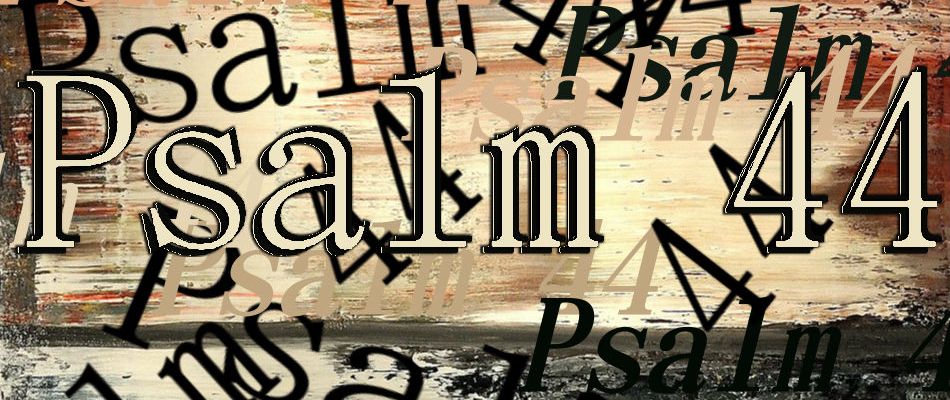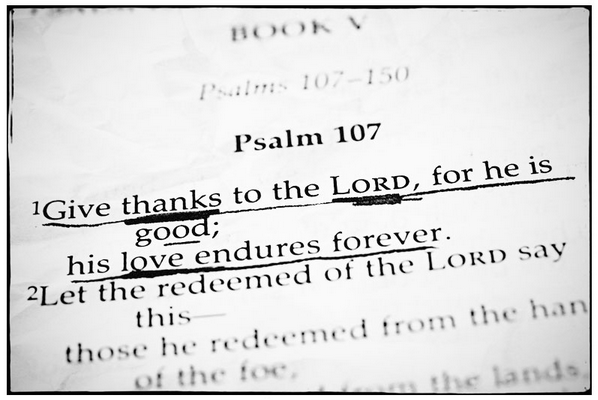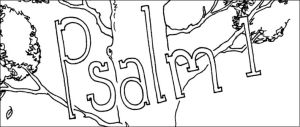How do you handle affliction? Psalm 44 (full Psalm here) is a story of afflicted people contemplating the purpose, and source of the affliction. The suffering is not hypothetical; it is described. God’s present interaction through the affliction is not proposed, but acknowledged. Likewise, the answer of deliverance is sought through God, not through the strength of the afflicted. “I will not trust in my bow, nor shall my sword save me. But You have saved us from our enemies.” The psalmist remembers the former salvation of his ancestors, and applies the same saving power to his people in the present. All the while he speaks directly about the affliction at his doorstep. “You have cast us off, and put us to shame… You have given us like sheep intended for slaughter.” How can God save, and destroy at the same time? Such are the questions of the afflicted soul. Many would forget the promises of God and curse Him in the midst of suffering. Yet, rejecting God and looking to false gods, or one’s own strength leaves no hope for true deliverance. In the present suffering it is difficult to have hindsight – which reveals the tried and true power of God. But, if those suffering look to the promises of God, and remember the tangible examples of His goodness, it produces faith in Him, trust in His power, and makes the hope of salvation very real. “Faith is the substance of things hoped for and the evidence of things not seen.” (Hebrews 11:1) It is by faith that the hoped for salvation becomes substantial. And, the faith must be in the one true God. Even so, why does God allow such affliction to begin with?
“…the nations which the Lord left that He might test Israel by them” (Judges 3:1). God wants precious and valuable – people of quality. Precious things are made precious through tremendous pressure over time. Diamonds are formed this way. It is not an easy process. It’s rare. But, that’s what makes it so valuable. In the same way, God makes His people to be of great value; He wants a precious treasure to be proud of and to cherish. He’s a God of high taste. The process is difficult, but the results are worthy. You cannot manufacture quality of character. It must be developed though a process of fiery trial. The product is described in Isaiah 63:3 “a crown of glory in the hand of the Lord, and a royal diadem in the hand of our God.” To be precious to God for eternity often means suffering through affliction for a time. To deny suffering, and so cheat God from His precious jewel, is to remain as dust yet unformed by God into His prize creation. Let this be our state of heart: “All this has come upon us; But we have not forgotten You.”





 trees, but only chaff to be blown by the gentlest breeze of the wind. They have no root, no substance, no purpose, no prosperity. There is protection and prosperity for the righteous but not for the wicked. This doesn’t always seem to be the case, but we must hold fast to the promises of God, and understand where real value lies-that is, in the eternal spiritual kingdom of God.
trees, but only chaff to be blown by the gentlest breeze of the wind. They have no root, no substance, no purpose, no prosperity. There is protection and prosperity for the righteous but not for the wicked. This doesn’t always seem to be the case, but we must hold fast to the promises of God, and understand where real value lies-that is, in the eternal spiritual kingdom of God.